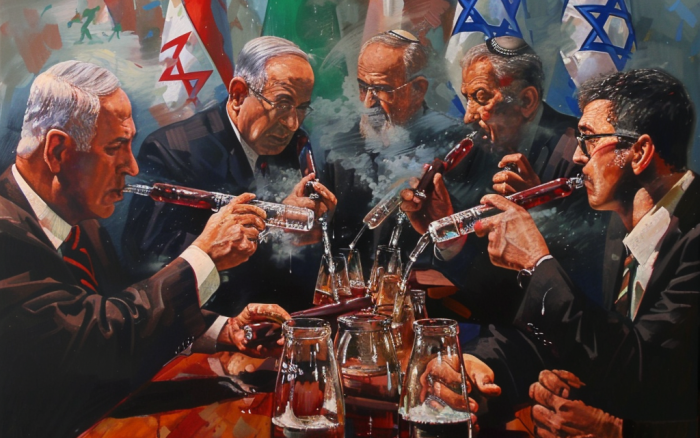In a bold move that has left the international community both perplexed and mildly amused, Gaza’s latest proposal for a ceasefire has taken a decidedly unconventional turn. The document, leaked to the media late Sunday evening, outlines a comprehensive plan for peace that hinges on one pivotal, unorthodox stipulation: a mandatory bong session between conflicting leaders.
Titled “High Hopes for Peace,” the proposal suggests that world leaders involved in the ongoing disputes gather in a neutral, undisclosed location, where they would partake in a ceremonial bong session designed to “elevate perspectives and foster a sense of shared humanity.” According to the document, the belief is that such an experience could break down barriers, reduce tensions, and maybe even inspire a hit reggae album.
The international reaction has been a mixture of skepticism and incredulity. Critics argue the plan trivializes the complex geopolitical conflicts that have plagued the region for decades, while others suggest that desperate times call for desperate measures—or, at the very least, creative ones.
Satirical pundits have had a field day with the proposal. One commentator quipped, “Finally, a peace plan that acknowledges that world leaders might just need to chill out.” Meanwhile, memes depicting various global leaders engaging in the proposed peace ritual have flooded social media, providing a humorous if not entirely practical solution to world peace.
On a more serious note, advocates for drug reform have seized the opportunity to highlight the potential therapeutic and diplomatic benefits of cannabis, suggesting that, while the proposal may seem far-fetched, the underlying idea of using alternative methods to foster dialogue and understanding is worth considering.
As the world awaits official responses from the leaders named in the proposal, the conversation around unconventional diplomacy and the role of shared human experiences in conflict resolution continues to evolve. Whether or not this particular plan gains any traction, it’s clear that the quest for peace in the region is prompting some outside-the-box thinking—some might even say, “high-minded” ideas—that challenges the status quo of international diplomacy.

